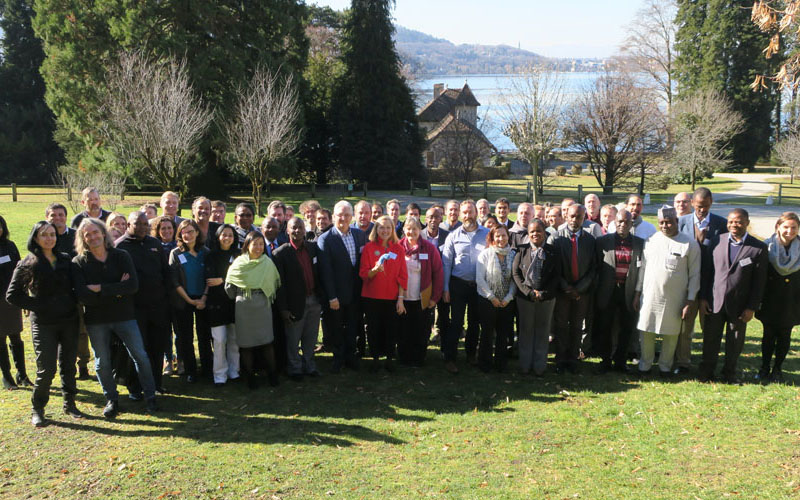
The 4th Global Task Force on Cholera Control (GTFCC) – WaSH Working Group meeting was held on 12 - 13 February 2019 in Veyrier du Lac, France. At the meeting, actors involved in cholera control and prevention discussed the challenges and next steps regarding implementation of the Ending Cholera Roadmap in countries, with a focus on WaSH. National Cholera Plans play a central role in implementation of the Roadmap by targeting cholera hotspots, identifying multi-sectoral activities and mobilizing the required resources. The WaSH component of the National Cholera Plans aims to increase access to safely managed water and sanitation services in all cholera hotspots to reach 100%, which is in line with the UN’s Sustainable Development Goal 6.
Since the launch of the Cholera Roadmap in October 2017, a growing number of countries have committed to the Cholera Roadmap and aim to develop a National Cholera Control/Elimination Plan. Representatives from seven countries attended the meeting, including Democratic Republic of the Congo, Haiti, Malawi, Nigeria, Zambia, Zimbabwe and Yemen, to present the status of their respective National Cholera Plans, highlighting cholera-related WaSH work at the national level.
A number of partners also provided an overview of their in-country WaSH efforts to support National Cholera Plans and overall cholera control and elimination efforts. Dr. Stanislas Rebaudet, from Assistance Publique – Hôpitaux de Marseille, presented findings concerning the effectiveness of case-area targeted response interventions against cholera in Haiti. Dr. Christine Marie George, from Johns Hopkins University, discussed the CHoB17 Mobile Health Program, in which WaSH mobile health is used as an innovative tool to facilitate behavior change in Bangladesh. Dr. Daniele Lantagne, from Tufts University, provided an overview of her group’s results on efficacy of certain disinfection interventions commonly used in the field during outbreak response, such as bucket chlorination and household spraying, for which scientific evidence is lacking in the literature. Dr. Ani Deshpande, from University of Washington, discussed mapping of access to safe water and sanitation in low-income and middle-income countries and the implications for disease control. Other major partners such as IFRC, UNICEF and WHO also presented an overview of their WaSH contribution to the GTFCC Cholera Roadmap.
Finally, an update was provided concerning the WaSH Working Group research priorities for 2019, which included optimization of community-level interventions, synergy between oral cholera vaccine and WaSH interventions, behavior change, impact studies, and disease transmission dynamics studies to define minimum WaSH packages.
>> More information and videos from the meeting.
